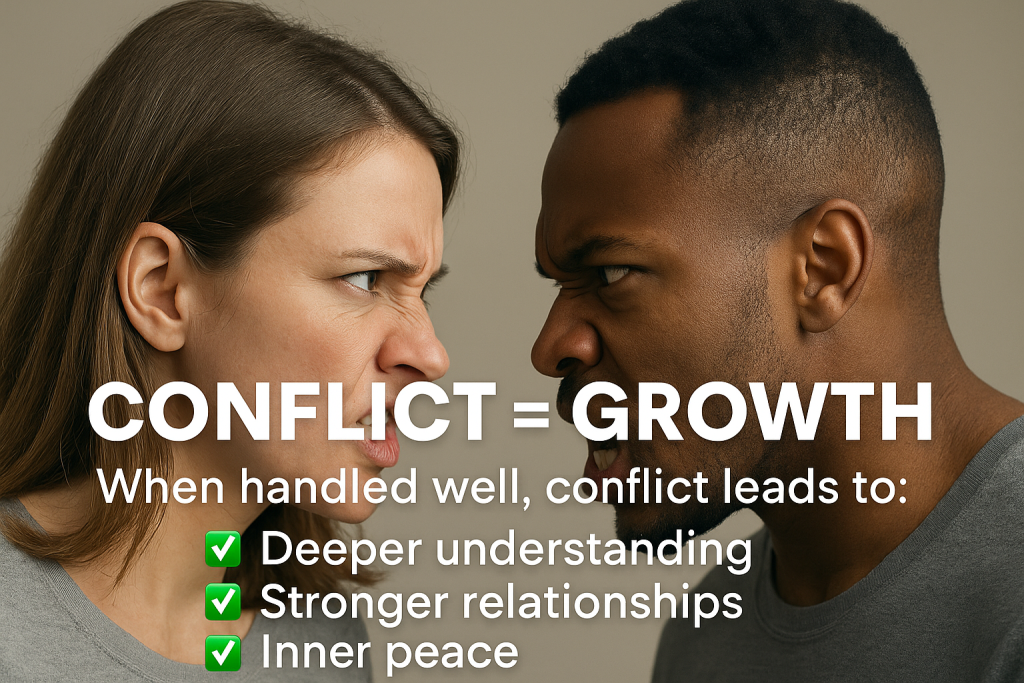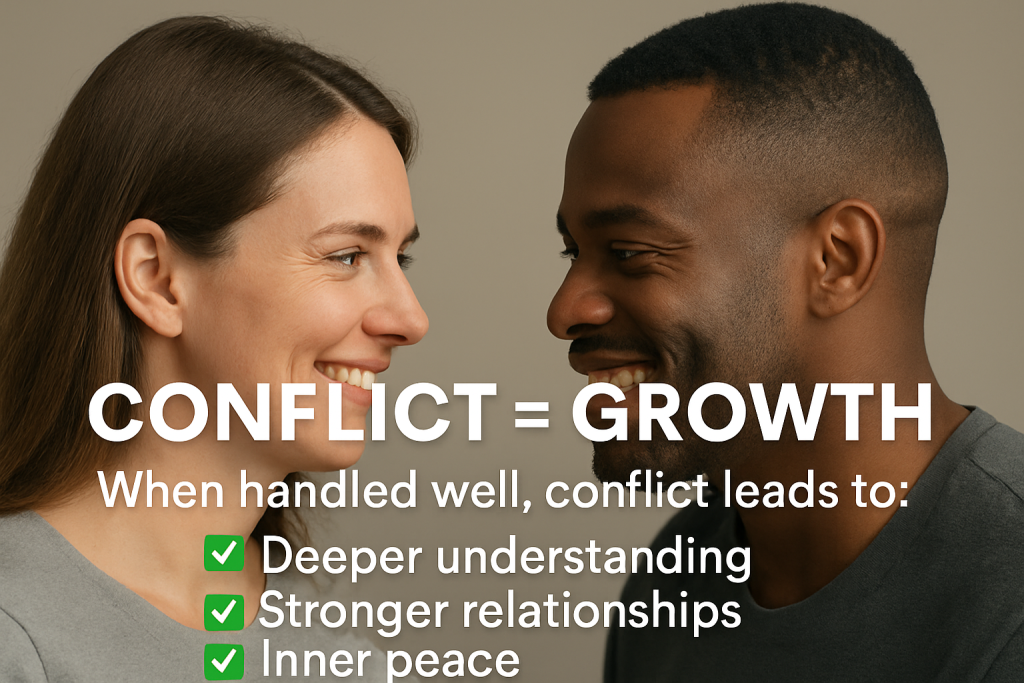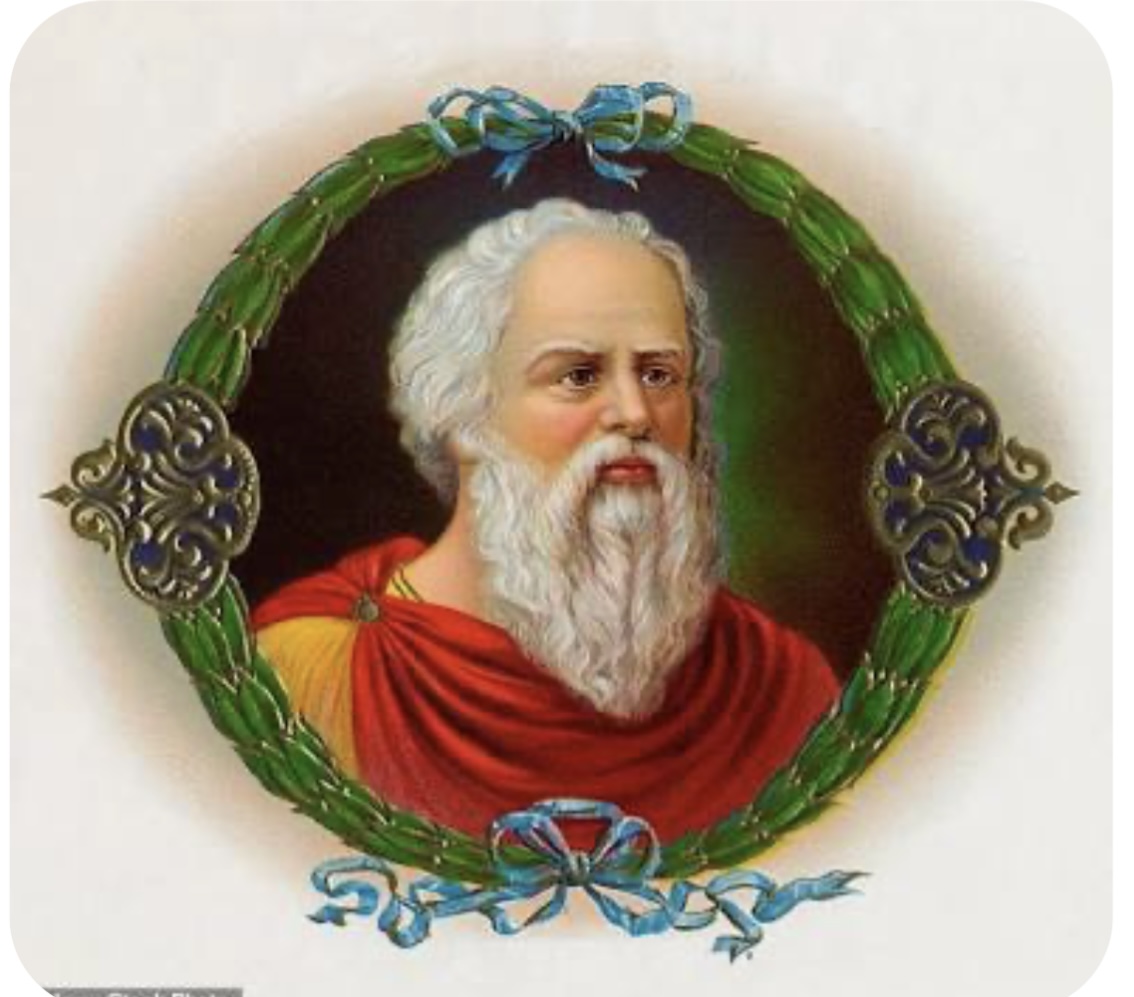And What Socrates Can Teach Us About Facing It. What Socrates knew that most people still don’t.
Let’s be honest: Conflict Feels Uncomfortable. Most of us avoid conflict like the plague. But is staying silent really keeping the peace?
The Real Truth: Avoiding conflict doesn’t fix the problem. It just buries it. And buried tension always finds a way to resurface.
What Socrates Taught Us: Socrates didn’t fear conflict. He used it by asking hard questions, bringing hidden truths to light.
He knew: conflict isn’t the enemy—ignorance is.
Most of us go out of our way to avoid Conflict. Whether it’s a tense conversation with a partner, a disagreement with a colleague, or a long-standing family grudge. We often think peace comes from staying quiet or walking away.
But here’s the truth: peace doesn’t come from avoiding Conflict. It comes from learning how to face it with strength, honesty, and intention.
🌱 Conflict Is a Sign of Growth
When we avoid Conflict, we don’t eliminate the problem—we bury it. But buried issues have roots, and they grow deeper over time. Real peace comes from digging those roots up, examining them, and dealing with them directly. That takes courage and builds confidence, clarity, and connection.
📖 A Moment with Socrates: The Power of Leaning into Conflict
Long ago in ancient Athens, Socrates wandered the streets asking people what they thought they knew.
One day, he approached a powerful politician and asked a simple question:
“What is justice?”
Confident in his status, the man scoffed and gave a rehearsed answer. But Socrates wasn’t satisfied. He kept asking questions—not to humiliate, but to reveal the deeper truth. The politician grew frustrated. Others around them began to gather. Whispers turned to laughter. Conflict was brewing.
But Socrates didn’t back down. He wasn’t aggressive—he was curious. He believed conflict wasn’t something to avoid; it was a doorway to wisdom. That one conversation challenged the man’s certainty and planted seeds of doubt that would ripple across the city.
Eventually, Socrates was put on trial and sentenced to death for “corrupting the youth” and “disrespecting the gods.” But even as he drank the poison, he said: “The unexamined life is not worth living.”
He proved something timeless: Avoiding conflict may keep things comfortable, but it often keeps us small. Facing it—with humility and courage—can transform not only our thinking, but our lives.
💡 A Lesson from Socrates
Let’s go back in time for a moment to Ancient Greece.
One of history’s most famous philosophers, Socrates, wasn’t afraid of Conflict. In fact, he welcomed it—not in a hostile way—but as a tool for truth. He would walk the streets of Athens asking difficult questions that challenged people’s beliefs, which often made others angry or uncomfortable.
But Socrates believed Conflict wasn’t something to fear—it was something to explore. If someone got defensive, it meant there was something important hiding underneath. Instead of backing off, he leaned in with curiosity.
Eventually, his refusal to avoid Conflict cost him his life. But his legacy? A method of dialogue that has shaped philosophy, law, and education for over 2,000 years.
Socrates proved that facing Conflict directly, without aggression but with openness, can lead to powerful transformation.
🔄 From Tension to Transformation

The key is to shift how we see Conflict. It’s not a battle to be won. It’s an opportunity to listen, understand, and grow. That doesn’t mean every Conflict feels good. But it means that discomfort has a purpose; it guides us toward something real.

Here’s a simple way to practice this in your daily life:
- Pause before reacting: Breathe. Let the emotion pass before you speak.
- Get curious: What’s really behind the other person’s reaction? What’s underneath yours?
- Speak honestly, not harshly: Share how you feel without blaming or accusing.
🔚 Final Thought
Making peace with Conflict doesn’t mean loving confrontation. It means not running from it. Because often, what feels like a fight is actually a door to a more profound truth.
And sometimes, walking through that door is precisely what sets us free.

Nice
This blog post presents a compelling take on conflict, highlighting its role in personal and intellectual growth rather than something to fear. The reference to Socratic questioning reinforces the idea that constructive dialogue—not avoidance—leads to deeper understanding. By embracing open conversations, we transform tension into insight, fostering stronger relationships and personal clarity. The practical steps at the end are excellent tools for engaging in meaningful dialogue with honesty and curiosity. Overall, an empowering perspective on navigating difficult conversations!